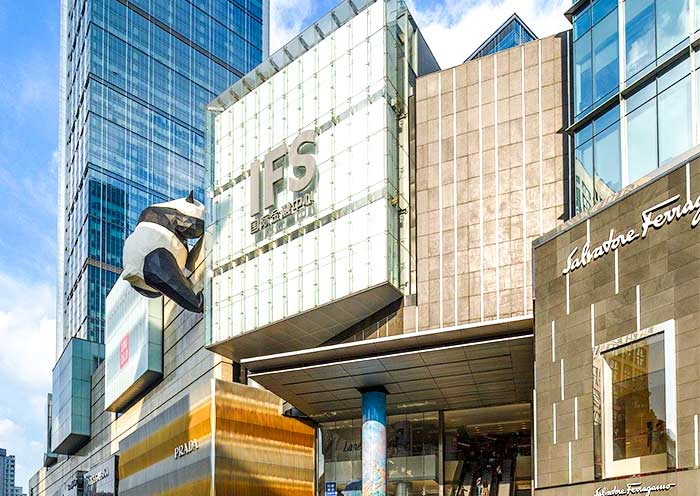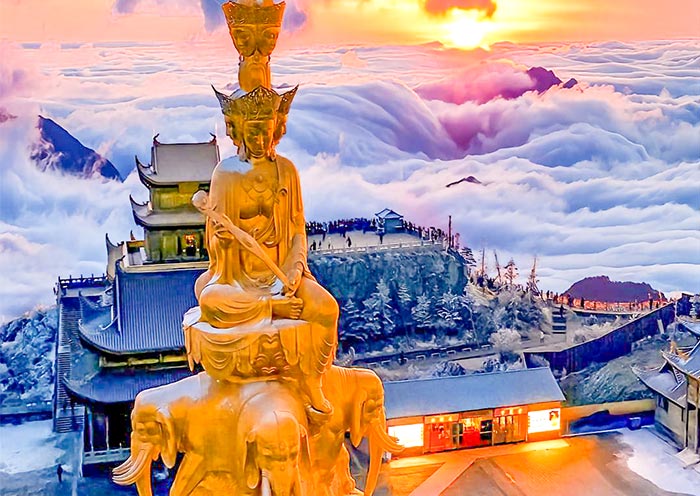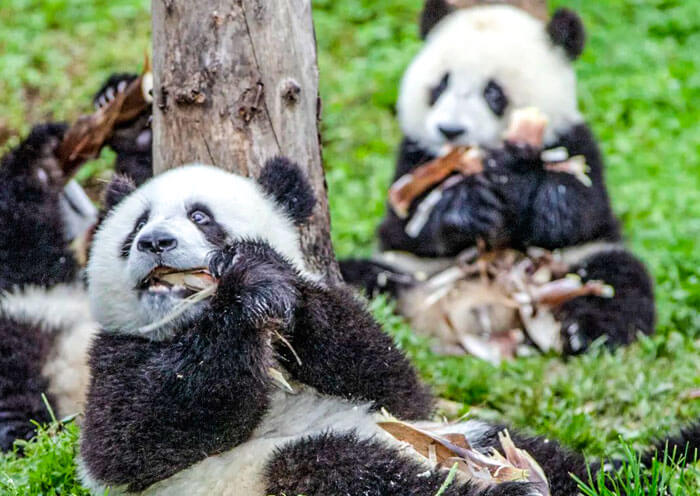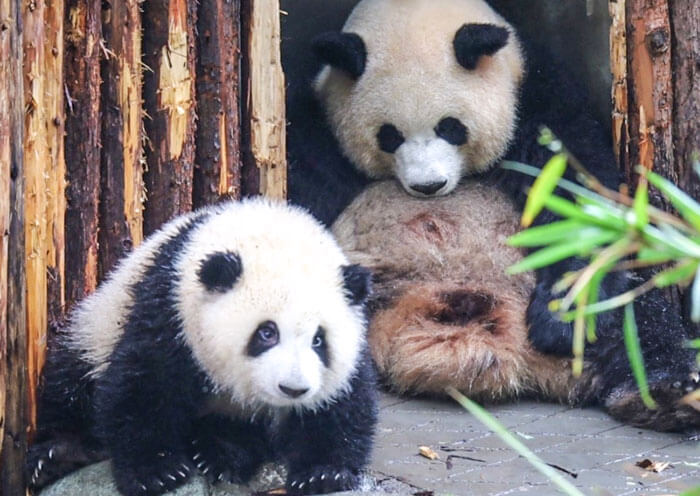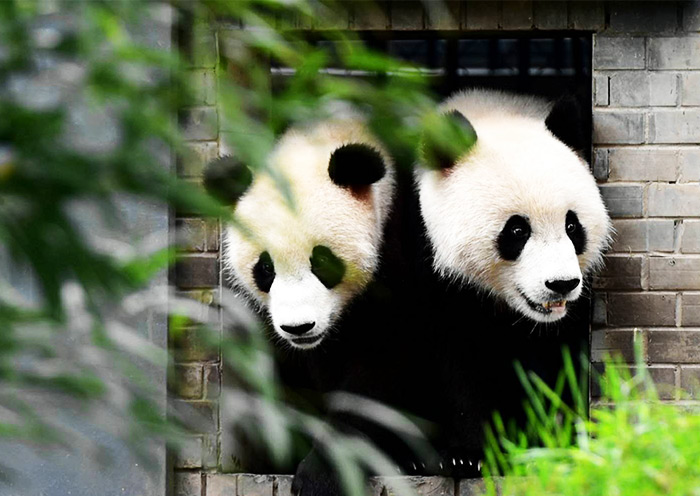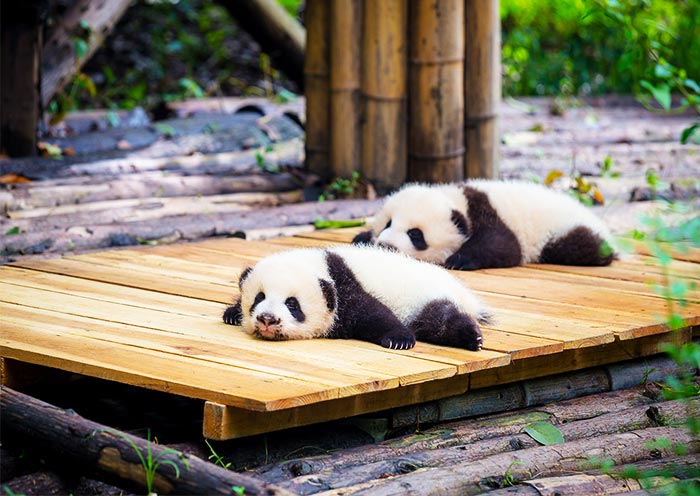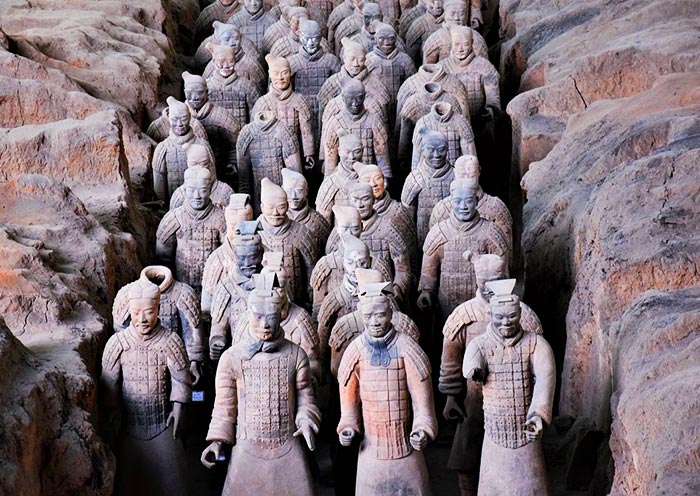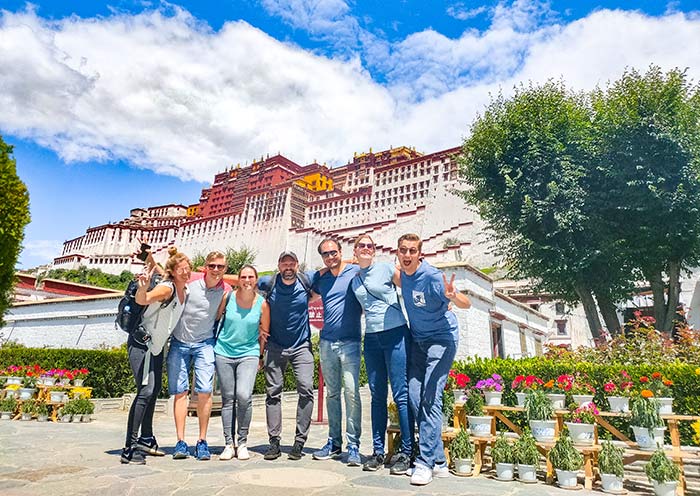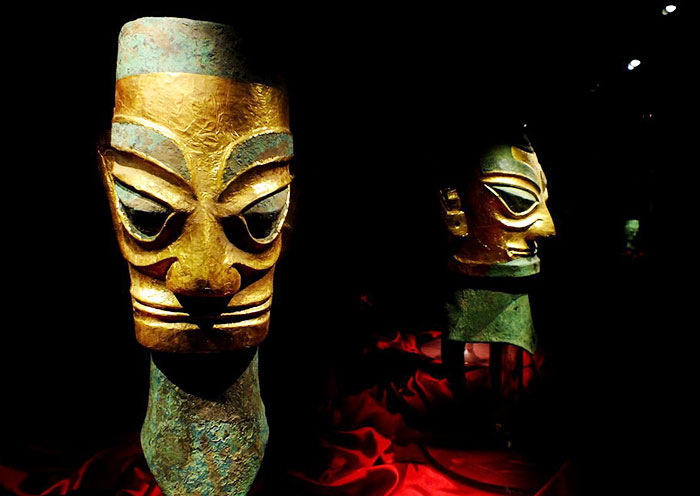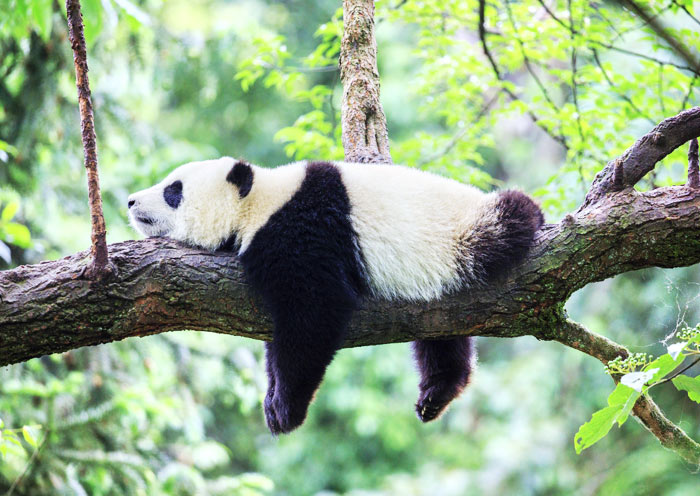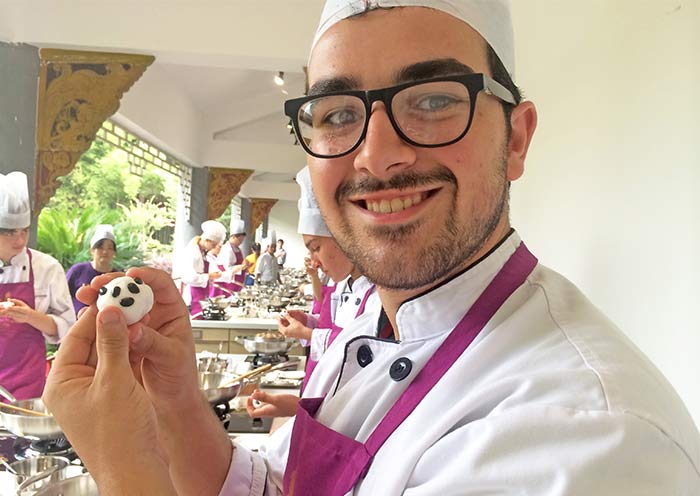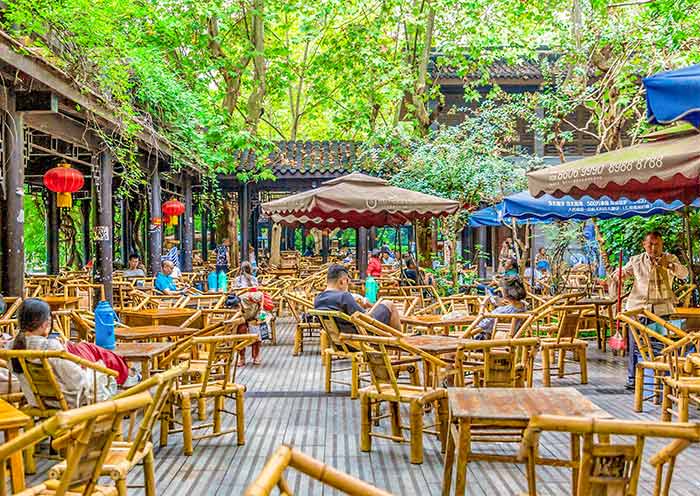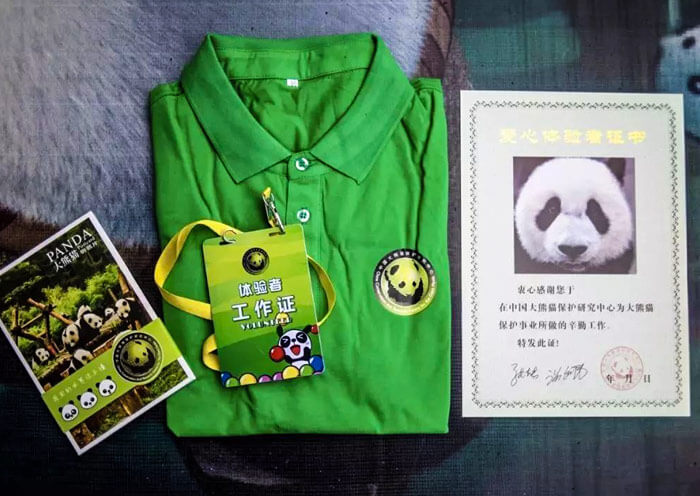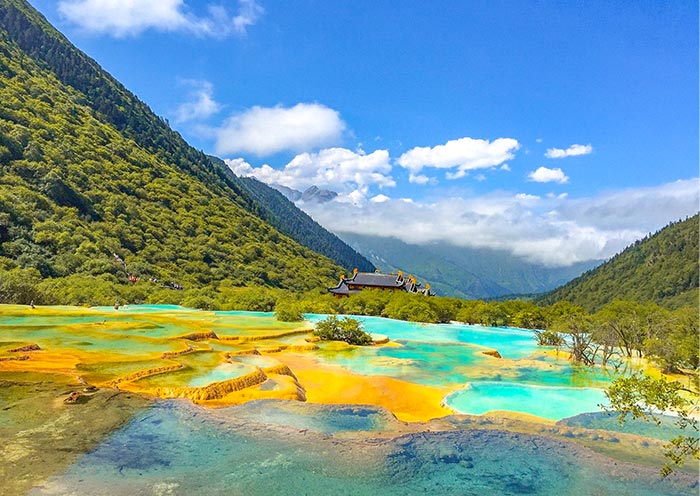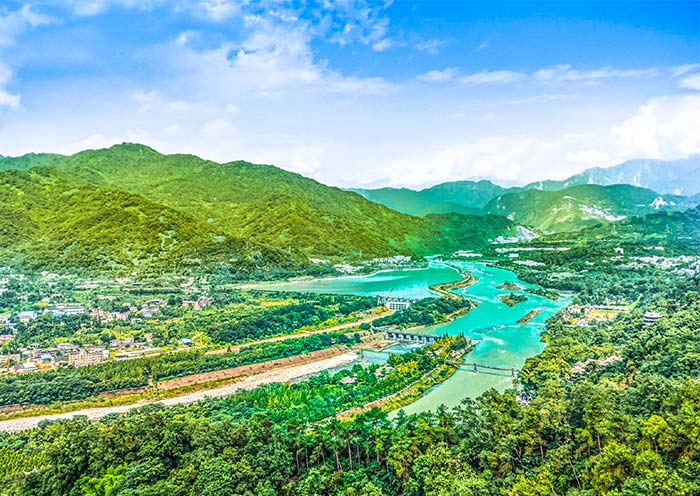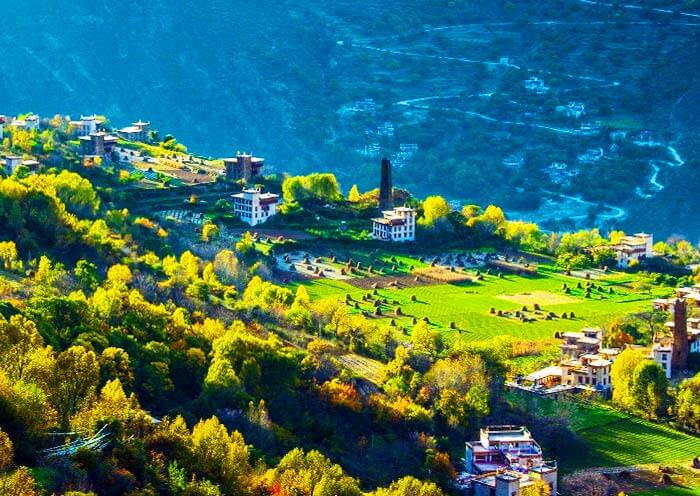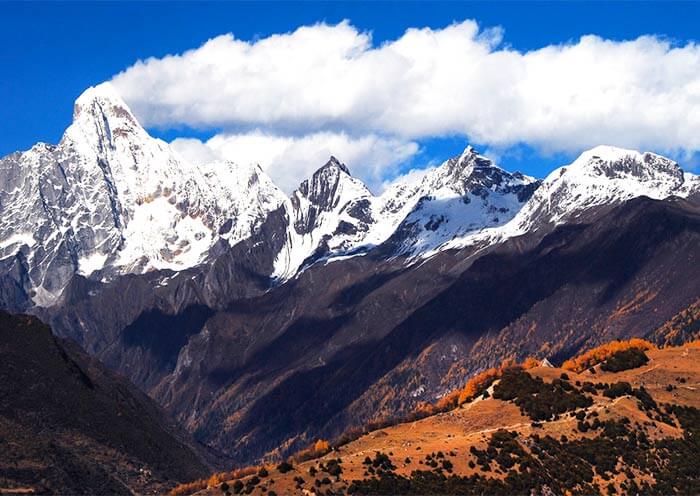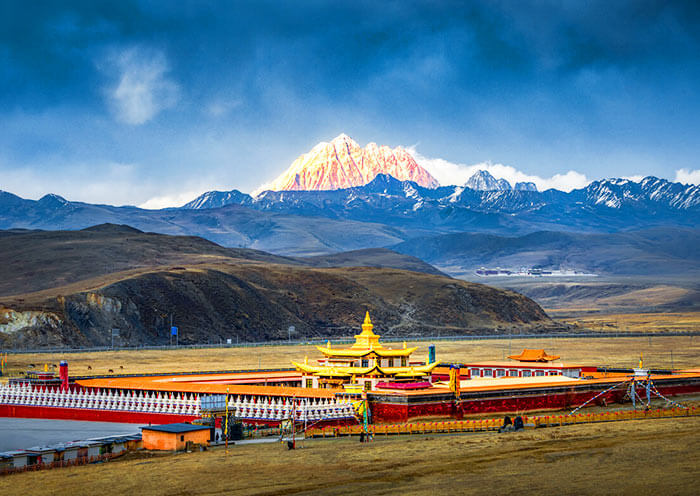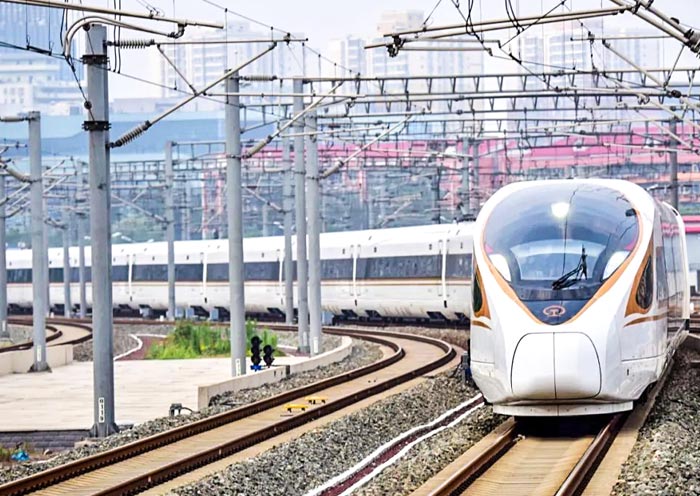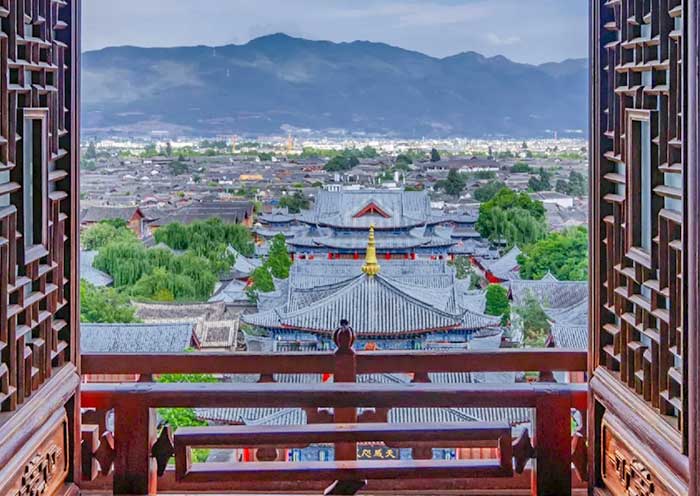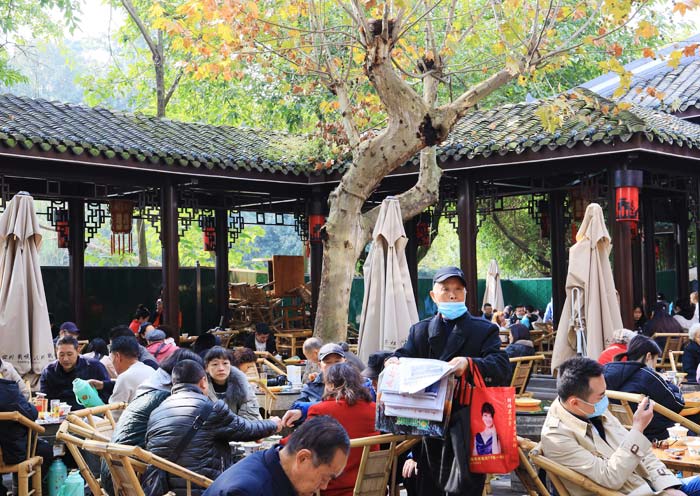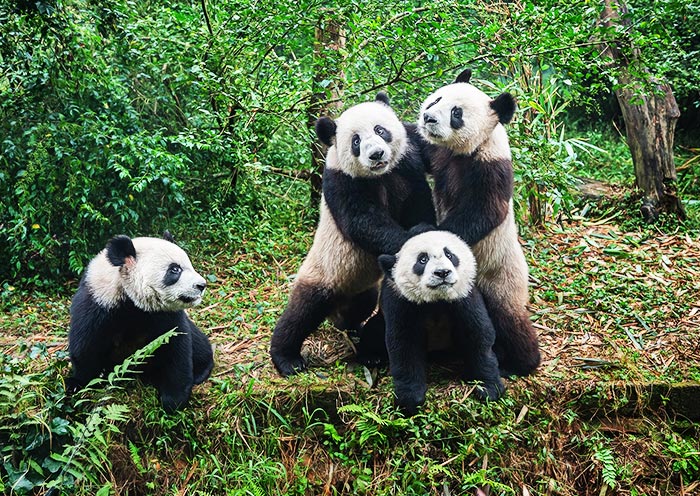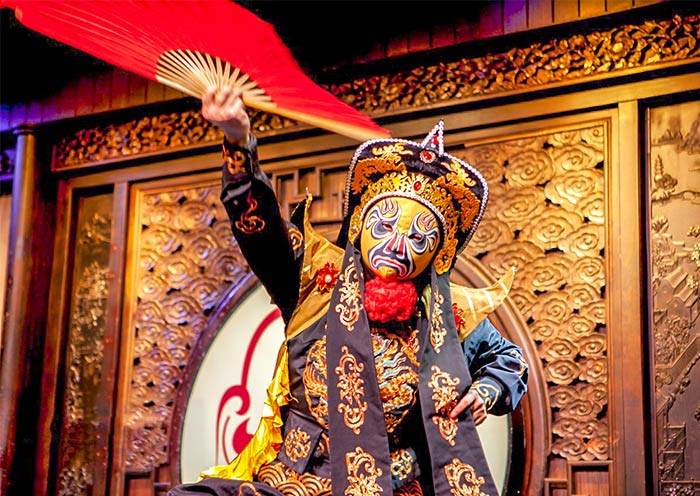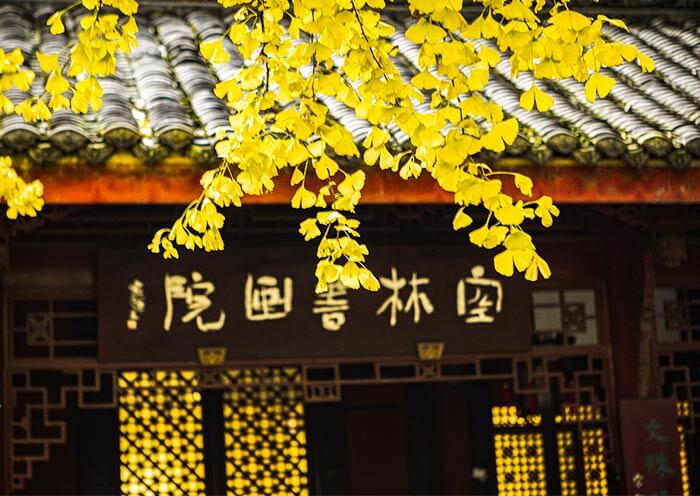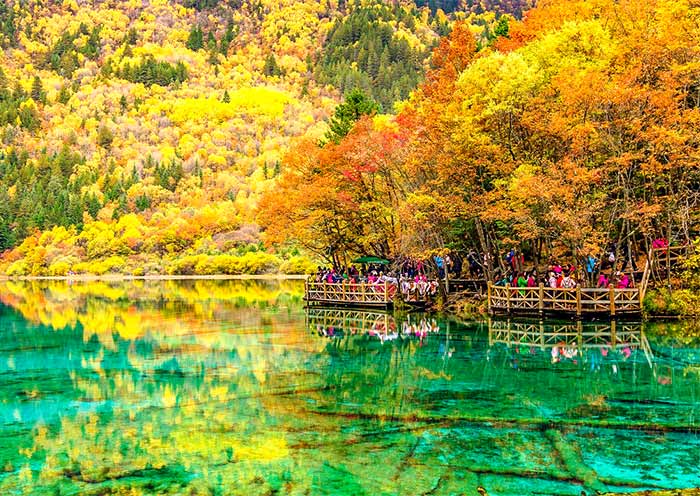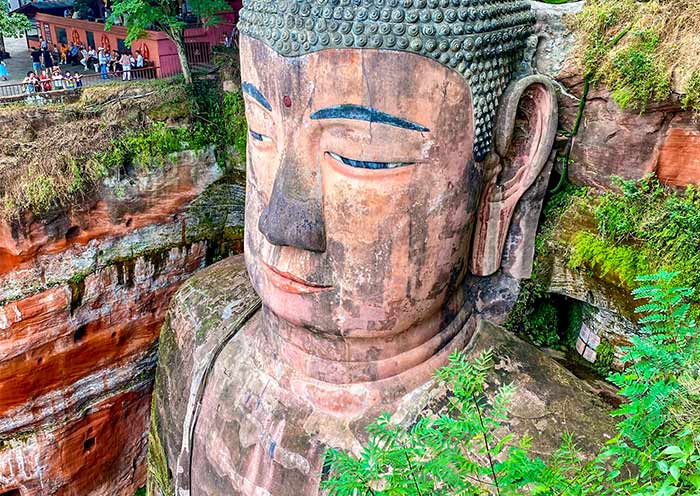I did a 2-week tour in China, in Dec24/Jan25 and I was very pleased with Asia Odyssey. They handled everything very professionally, from the good accommodations to the great tour guides we had. I totally recommend this company for China tours.
Chengdu Tours: 30 Best Chengdu Tour Packages 2025 (Local Agency)
Select from our 30+ Chengdu Tours and discover the enchanting allure of Chengdu and beyond with the largest local-based travel agency in Chengdu and Sichuan!
Why Chengdu tours? As “the Land of Abundance” since ancient times, Chengdu is known for its laid-back and easy-going atmosphere, but how can one truly explore its essence and taste its soul and spirit? As the birthplace of the ancient Shu civilization and Three Kingdom culture, how can one delve deeper into its rich history and culture? As the hometown of Giant Pandas, no trip to Chengdu is complete without seeing these beloved creatures up close. But how can you visit the panda base and make the most of your experience? How about becoming a panda keeper for a day?
30+ Best Chengdu Tours for Chengdu Private Tours & Group Tours
As a local travel agency in Chengdu, we offer a unique perspective that allows you to experience the city's extraordinary blend of tradition and modernity, providing deep insight into its essence. Our Chengdu tour packages including Chengdu Group Tours (cheap price from $376), Chengdu Panda Tours, Day Trips, and Food Tours, catering to all interests, whether you're a panda enthusiast, a foodie, a history buff, a nature lover, or an adventurer, with our top 30 Chengdu tour packages for 2025.
Tour Beyond Chengdu for More Experiences in China
Take Chengdu tours to the heart of Sichuan, including iconic destinations like the Leshan Giant Buddha, Mount Emei, Jiuzhaigou Valley, and Mount Siguniang. Discover the hidden gems of Chengdu, savor its culinary delights, and immerse yourself in its rich culture and history with us.
Moreover, Chengdu serves as the gateway to Western China, connecting you to stunning destinations such as Tibet, Xi’an, the Silk Road, Guilin, Guizhou, the Yangtze River, and more! All our Chengdu tours can be fully customized to suit your unique interests and preferences, all at the best possible local prices.
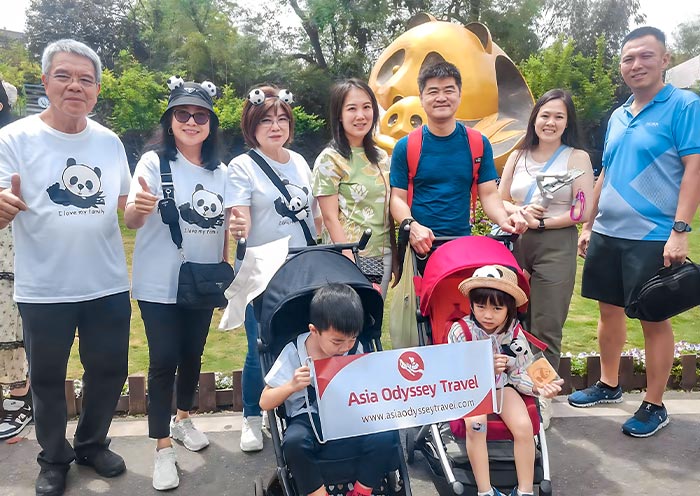
"Excellent Tour, best experience"
"A unique experience despite a difficult context thanks
to an experience team of organisers"
- Top 6 Chengdu Tours
- Chengdu Group Tours: Affordable Prices for 2025
- Hot Day Trips from Chengdu for Theme Travel
- Articles & Planning
Top 6 Chengdu Tours
Top 6 Chengdu Tours for a classic exploration of Chengdu with a local-based travel agency! From meeting adorable pandas to marveling at the iconic Leshan Giant Buddha and the scenic beauty of Mount Emei, experience the best highlights in and around Chengdu.
Chengdu Group Tours: Affordable Prices for 2025
Take Chengdu Group Tours starting from just $376! Choose from our short Chengdu group tours or embark on a longer China group tour starting from Chengdu. The best experiences and affordable prices are guaranteed!
Hot Day Trips from Chengdu for Theme Travel
Travel in Chengdu based on your interests! Are you a nature enthusiast longing for a face-to-face encounter with the world-renowned Chengdu Giant Panda? Or perhaps a history buff ready to unearth the secrets of the ancient Shu civilization at Sanxingdui? Maybe you're a spiritual explorer, keen to marvel at the awe-inspiring grandeur of the Leshan Giant Buddha. Or a lifestyle explorer, looking to immerse in Chengdu's vibrant local life in a compressed timeframe. Whatever your interest, our Chengdu day trips have you covered.
All Inclusive Sichuan Tours
Sichuan is a truly enchanting destination, brimming with a wealth of unforgettable experiences. Don't miss out on some of the region's most captivating attractions, including the awe-inspiring Leshan Giant Buddha, the serene Mount Emei, the breathtaking Fairyland on Earth - Jiuzhaigou Valley and Huanglong National Park, the ancient Dujiangyan Irrigation System and Mount Qingcheng, as well as the unique scenery in Western Sichuan like Daocheng Yading. Why settle for an ordinary tour when you can create a bespoke Sichuan adventure tailored to your unique interests? Craft a personalized itinerary that lets you fully immerse yourself in the rich beauty and culture of Sichuan!
Popular China Tours from Chengdu
Don't limit your visit to just Chengdu - expand your horizons and tour beyond the city! Many travelers choose Chengdu as a gateway city to start a long China tour, covering other breathtaking destinations such as Guilin & Yangshuo, the Yangtze River, Xian, Tibet, Yunnan, Beijing, Shanghai, Zhangjiajie and more. With a variety of options, you can pick the destinations that interest you the most and create a truly unforgettable journey from Chengdu!
Chengdu Tours Planning & Useful Articles
How to Plan a Chengdu Tour? Planning a Chengdu Tour can be overwhelming, but with a little bit of research and preparation, you can make the most of your time in this homeland of Giant Pandas. To make things easier, we offer a wealth of Chengdu travel information to help you plan your Chengdu tour. Check out our latest and useful articles on topics such as "How to Plan Chengdu tour", "Best Things to Do in Chengdu", "Best Time to Visit Chengdu", and "Chengdu Travel FAQs". View All Sichuan Travel Guide >>
Chengdu Tours FAQs - Plan Your Chengdu Tours Worry-Free
-
 1. How to get to Chengdu?
1. How to get to Chengdu?
Chengdu, as one of the main transportation hubs in Western China, is quite accessible from both domestic and international locations.
By Air:
Chengdu Shuangliu International Airport is one of the busiest airports in China and provides numerous domestic and international flights. It connects Chengdu with many major cities worldwide, including direct flights from New York, London, Paris, Frankfurt, Sydney, and many others. It also offers numerous flights to other cities within China like Hong Kong, Beijing, Shanghai, Guangzhou, Xian, Guilin, Hangzhou, Kunming, Lhasa, Lanzhou, Wuhan, Xiamen, Guiyang, Chongqing…
By Train:
Chengdu is well connected with China's high-speed rail network. You can reach Chengdu by high-speed trains from various cities across China such as Xian (3-4 hours), Chongqing (1.5-2 hours), Guiyang (3.5-4.5 hours), Kunming (6-6.5 hours), Shanghai (12.5-14.5 hours), etc.
-
 2. Can I book a tour that combines Chengdu and other parts of Sichuan Province?
2. Can I book a tour that combines Chengdu and other parts of Sichuan Province?
Yes, we have many tours available that not only cover Chengdu but also other scenic parts of Sichuan Province like Mount Emei, Jiuzhaigou, Mount Siguniang, and more.
-
 3. Can I customize my own itinerary for a Chengdu tour?
3. Can I customize my own itinerary for a Chengdu tour?
Yes, We offer customizable itineraries, allowing you to tailor your Chengdu tour based on your interests and preferences.
-
 4. Are there any Chengdu tours that include a visit to the panda sanctuary?
4. Are there any Chengdu tours that include a visit to the panda sanctuary?
Yes, many Chengdu tours include a visit to the Chengdu Research Base of Giant Panda Breeding, which is a highlight of the city.
-
 5. What is the best time of year to visit Chengdu?
5. What is the best time of year to visit Chengdu?
Chengdu is a year-round destination, each season offering a unique perspective of the city.
Spring (March - June): The weather is comfortable and warm, making it a great time to visit the outdoor attractions like Chengdu Research Base of Giant Panda Breeding and People’s Park.
Summer (June - September): While the city can get hot, it's also the perfect time to escape to the surrounding mountains like Mount Qingcheng and Mount Emei for cooler temperatures. The lush green landscapes are a sight to behold during this time.
Autumn (September - November): Autumn offers pleasant weather, not too hot nor too cold. It's also the time for the harvest season, which means food festivals and other cultural events.
Winter (December - February): Chengdu doesn't have harsh winters, and snow is rare. It's the best time to enjoy Chengdu's hotpot and other spicy cuisine. Also, indoor attractions like the Jinsha Site Museum and the Wuhou Memorial Temple can be comfortably explored.
While Chengdu is suitable for visiting all year round, the specific activities and attractions you wish to experience could depend on the season. Always check the local weather and festival schedules while planning your visit to make the most out of your trip.
-
 6. What are some of the top attractions in Chengdu?
6. What are some of the top attractions in Chengdu?
Chengdu Research Base of Giant Panda Breeding: A must-visit to see and learn about the conservation of giant pandas.
Jinli Ancient Street: A lively area offering traditional Chinese goods, food, and tea houses.
Wuhou Memorial Temple: A peaceful memorial dedicated to the emperor of the Shu Kingdom, Liu Bei.
Kuanzhai Alley (Wide and Narrow Alley): Ancient streets blending traditional architecture with modern amenities.
Du Fu Thatched Cottage: A tranquil park and museum dedicated to the beloved poet, Du Fu.
Sichuan Cuisine Museum: An interactive museum focused on Sichuan cuisine.
People's Park: A popular local spot for relaxation and cultural activities.
Chunxi Road: The city's main shopping district.
Wenshu Monastery: Chengdu's largest and best-preserved Buddhist temple.
Tianfu Square: The city's largest public square, marked by a large Mao Zedong statue.
-
 7. How can I get to the Leshan Giant Buddha from Chengdu?
7. How can I get to the Leshan Giant Buddha from Chengdu?
You can reach Leshan from Chengdu by train or private car. The journey by train takes approximately 50 mins, while a car journey can take around 2 hours.
-
 8. What's the best way to see Mount Emei?
8. What's the best way to see Mount Emei?
Here are some popular ways to experience the mountain:
1) Hiking: Mount Emei has a variety of hiking trails that allow you to explore the natural beauty of the mountain at your own pace. The most popular route is to hike from the base of the mountain to the Golden Summit, which takes about 2-3 days.
2) Cable car: If you prefer to skip the hiking and enjoy the scenic views from a comfortable ride, you can take a cable car from the base of the mountain to the Golden Summit.
3) Visit temples and monasteries: Mount Emei is a sacred mountain with numerous temples and monasteries, some of which date back to the 1st century AD. Visiting these sites is a great way to learn about the religious and cultural significance of the mountain.
4) Overnight stay: Consider spending a night at the mountain's base or on the mountain itself to fully immerse yourself in the natural beauty and peaceful atmosphere of Mount Emei.
Latest Chengdu Tours Reviews from Our Customers

George
Romania
Destination(s): Beijing, Xian, Shanghai, Chengdu/Sichuan, Guilin/Yangshuo, YangtzeRiver
Date of Experience: Jan 01, 2025
Tour Customized by: Catherine
You May be Interested in This Tour: Customized Tour

Janice
Singapore
Agency helped plan an itinerary to Jiuzhaigou, Zhangjiajie and Huangshan in mid to end sep 2024. Rachel is efficient and prompt in addressing queries and concerns. Guides are helpful and kind, patient, efficient and go the extra mile to assist to make the tour meaningful sweet and memorable. The guides are very professional and knowledgeable too. Highly recommended to anyone who wishes to plan a trip to these beautiful places in China. Just to add, it would be good to provide screenshot of High Speed Train stations... as the names of station are not visible at the train station.. So that the journey can be more visible and smooth. Nonetheless, overall 5 star services, well done all !! Really appreciate it :)
Destination(s): Chengdu/Sichuan, Zhangjiajie, Huangshan
Date of Experience: Sep 16, 2024
Tour Customized by: Ashley
You May be Interested in This Tour: Customized Tour

LYNETTE YEE SUK YEEN
Malaysia
We had the best time at Chengdu and Jiuzhaigou! The organising stage with Rachel was super smooth and easy. She was helpful with information and willing to make changes to tailor to what we wanted. The guides and drivers were all efficient, knowledgeable and had a decent grasp of English. Everything went well with no hiccups, and we really had a great time.
Destination(s): Chengdu/Sichuan
Date of Experience: Dec 08, 2024
Tour Customized by: Ashley
You May be Interested in This Tour: Customized Tour
- United States (+1)
- Australia (+61)
- Singapore (+65)
- Malaysia (+60)
- Philippines (+63)
- Canada (+1)
- Italy (+39)
- Indonesia (+62)
- United Kingdom (+44)
- Spain (+34)
- Mexico (+52)
- Hong Kong (+852)
- Thailand (+66)
- United Arab Emirates (+971)
- New Zealand (+64)
- South Africa (+27)
- Germany (+49)
- Brazil (+55)
- India (+91)
- France (+33)
- Vietnam (+84)
- The Netherlands (+31)
- Saudi Arabia (+966)
- Ireland (+353)
- Argentina (+54)
- Switzerland (+41)
- Romania (+40)
- Pakistan (+92)
- Japan (+81)
- Portugal (+351)
- Bangladesh (+880)
- South Korea (+82)
- Puerto Rico (+1)
- Türkiye (+90)
- China (+86)
- Belgium (+32)
- Qatar (+974)
- Greece (+30)
- Taiwan (+886)
- Austria (+43)
- Poland (+48)
- Israel (+972)
- Chile (+56)
- Sri Lanka (+94)
- Nigeria (+234)
- Peru (+51)
- Colombia (+57)
- Hungary (+36)
- Nepal (+977)
- Denmark (+45)
- Bulgaria (+359)
- Norway (+47)
- Slovenia (+383)
- Sweden (+46)
- Kuwait (+965)
- Costa Rica (+506)
- Ecuador (+593)
- Venezuela (+58)
- Malta (+356)
- Croatia (+385)
- Tunisia (+216)
- Czechia (+420)
- Mongolia (+976)
- Bahrain (+973)
- Mauritius (+230)
- Papua New Guinea (+675)
- Cambodia (+855)
- Dominican Republic (+1)
- Luxembourg (+352)
- Finland (+358)
- Guatemala (+502)
- Myanmar (+95)
- Maldives (+960)
- Slovakia (+421)
- Laos (+856)
- Serbia (+381)
- Brunei (+673)
- Oman (+968)
- Macao (+853)
- Panama (+507)
- Morocco (+212)
- Jordan (+962)
- Georgia (+995)
- Fiji (+679)
- Bolivia (+591)
- Lithuania (+370)
- Bahamas (+1)
- Cyprus (+357)
- Latvia (+371)
- Bhutan (+975)
- Iraq (+964)
- Iran (+98)
- Kenya (+254)
- Jamaica (+1)
- Zimbabwe (+263)
- Azerbaijan (+994)
- Uruguay (+598)
- Estonia (+372)
- Andorra (+376)
- Cameroon (+237)
- Ghana (+233)
- Kazakhstan (+7)
- Nicaragua (+505)
- Egypt (+20)
- Russia (+7)
- Albania (+355)
- Réunion (+262)
- Montenegro (+382)
- Algeria (+213)
- Afghanistan (+93)
- Martinique (+596)
- Uganda (+256)
- Honduras (+504)
- North Macedonia (+389)
- Trinidad and Tobago (+1)
- Suriname (+597)
- Antigua and Barbuda (+1)
- Zambia (+260)
- Ukraine (+380)
- Armenia (+374)
- Barbados (+1)
- Belarus (+375)
- Palestine (+970)
- Lesotho (+266)
- Moldova (+373)
- Ethiopia (+251)
- French Polynesia (+689)
- Gambia (+220)
- Guam (+1)
- Gibraltar (+350)
- Isle of Man (+44)
- New Caledonia (+687)
- El Salvador (+503)
- Comoros (+269)
- Seychelles (+248)
- Chad (+235)
- Samoa (+685)
- Cook Islands (+682)
- Palau (+680)
- Paraguay (+595)
- DR Congo (+243)
- Solomon Islands (+677)

